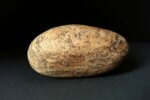Critical thinking is essential to a well-rounded college education. Students must be challenged to know not only what they believe but also why they believe it and why it is important. They must be challenged to question stereotypes and to evaluate everything they hear, read and observe without becoming a cynic.
Reason and investigation are not enemies of faith. In Acts 17, the apostle Paul was preaching and teaching, and the people of Berea were open-minded about what he had to say. But they didn’t just accept everything they heard as fact. They were “daily examining the Scriptures, to find out if these things were so” (Acts 17:11b). Critical thinkers understand that having a right to an opinion does not mean that every opinion is right, including their own. It’s good to have passionate beliefs while humbly considering the validity of those beliefs and engaging with the views of others. One must have a willingness not just to blindly adhere to traditions or accepted norms but also to seek truth. At Liberty University, students are encouraged to develop a clear defense for their faith, but to do so “with gentleness and fear” (1 Pet. 3:15b).
While students are pursuing a degree, they also learn to take ownership of the beliefs they will carry with them inside and outside the classroom. Many students enter college with beliefs that have been instilled by their family and friends. They must examine the truth claims they were taught, whether religious or nonreligious.
The challenge in modern culture is for students to avoid looking internally for truth but to look to God as the source of all truth. When students takes ownership of their beliefs, they won’t be as vulnerable to leave their faith and rely upon the truth claims of others. As an evangelical institution, Liberty provides an environment where students not only experience but also think through their faith.
Going away to college can be both exhilarating and challenging, and navigating through these new life experiences should not be done in isolation. Finding a community of like-minded people to encourage and support one another is essential in the college years, and Liberty University offers multiple opportunities for the student body to meet together, worship together and grow in faith together.
At some point, most students will ask themselves: How do I find my purpose in life? College can be a great place to discover one’s purpose. Through classes and educational pursuits, students can learn what they are passionate about and how they can make a positive difference in the world. At Liberty, engaged faculty members understand that their students are going through one of the most pivotal times in their lives, so they are there for them not only academically but also to teach life lessons and provide spiritual encouragement along the way.
Where a student attends college can alter the trajectory of their lives. They will thrive in an environment where critical thinking, ownership of one’s beliefs, a sense of community and a focus on finding their purpose can occur. At Liberty, we call this “training champions for Christ.“That phrase isn’t just our slogan—it’s our mission.
Lew Weider is the executive director of LU Serve and a professor at Liberty University’s John W. Rawlings School of Divinity.
CHARISMA is the only magazine dedicated to reporting on what the Holy Spirit is doing in the lives of believers around the world. If you are thirsty for more of God’s presence and His Holy Spirit, subscribe to CHARISMA and join a family of believers that choose to live life in the Spirit. CLICK HERE for a special offer.







Leave a Comment
You must be logged in to post a comment.